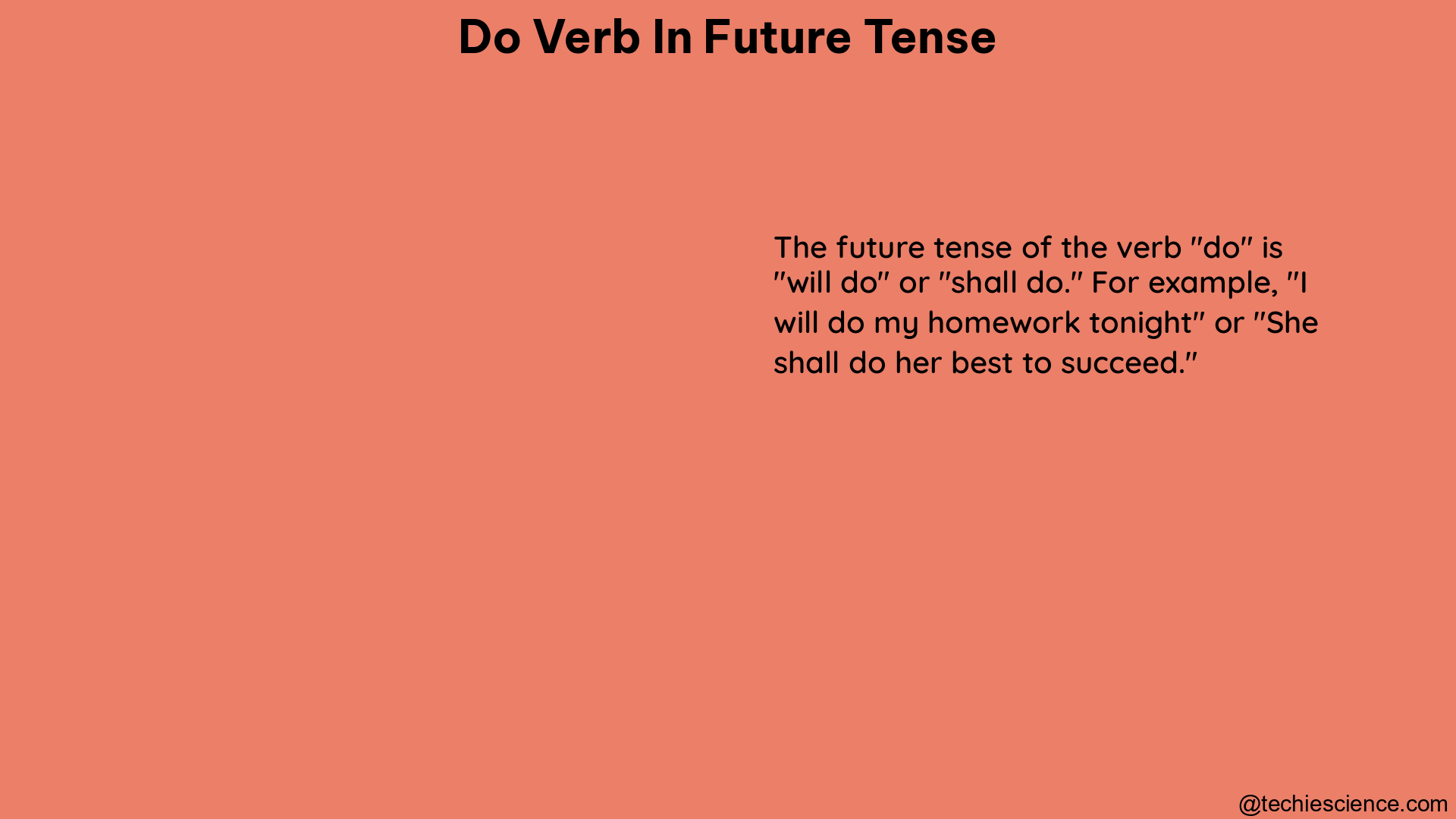The “do” verb is a versatile and essential part of the English language, and understanding its usage in the future tense is crucial for effective communication. In this comprehensive guide, we will delve into the intricacies of the “do” verb in the future tense, exploring its conjugations, examples, contractions, time expressions, and the nuances of politeness and tentativeness.
Conjugating the “Do” Verb in the Future Tense
The future tense of the “do” verb is formed by using the auxiliary verb “will” with the base form of “do.” Here are the conjugations:
| Pronoun | Conjugation |
|---|---|
| I | I will do |
| You | You will do |
| He/She/It | He/She/It will do |
| We | We will do |
| You | You will do |
| They | They will do |
Examples of the “Do” Verb in the Future Tense

- I will do my homework tonight.
- You will do the dishes after dinner.
- He will do the presentation at the meeting.
- We will do a group project for the assignment.
- You will do great on your exam.
- They will do the renovations next month.
Contractions of the “Do” Verb in the Future Tense
In informal writing and spoken English, contractions are commonly used for the “do” verb in the future tense:
| Pronoun | Contraction |
|---|---|
| I | I’ll do |
| You | You’ll do |
| He/She/It | He’ll/She’ll/It’ll do |
| We | We’ll do |
| You | You’ll do |
| They | They’ll do |
Time Expressions with the “Do” Verb in the Future Tense
Time expressions are often used with the future tense of the “do” verb to specify when an action will occur. Here are some common examples:
- Tomorrow, I will do the laundry.
- Next week, we will do a team-building exercise.
- In two days, they will do the necessary repairs.
- The day after tomorrow, I will do the grocery shopping.
Politeness and Tentativeness with the “Do” Verb in the Future Tense
In some cases, using the past tense “did” instead of the present tense “do” in future tense questions can convey a sense of politeness and tentativeness:
- Did you want to meet up tomorrow? (instead of Do you want to meet up tomorrow?)
This subtle shift in language can help soften the request and make it more polite or tentative, depending on the context and the speaker’s intention.
Additional Resources
- Primary Resources: A detailed guide to the present, past, and future tenses of the “do” verb, including exercises and examples.
- Ginger Software: A comprehensive explanation of the future tense, including the use of “will,” “be going to,” and “shall,” along with time expressions and contractions.
- Grammarly: A detailed explanation of the simple future tense, including its formation, usage, and examples.
- YouTube: A video by Mark Kulek explaining the “do” verb in the future tense, with examples and practice exercises.
References
- Primary Resources: Choosing the Correct Verb Tense – Do/Take
- Ginger Software: The Future Tense
- Reddit: The Use of “Did” Rather Than “Do” in Future Tense
- Grammarly: Simple Future Tense
- YouTube: The “Do” Verb in the Future Tense

Hi…. I am Goutam Datta. I have completed a double M. A. in English and B. Ed. I am a creative writer. Currently, I am a part of the LambdaGeeks.